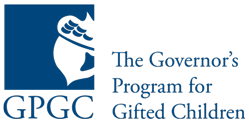Here are some reports from the teachers of each of our afternoon classes for the last week in the Program. We have organized them by class:
Computer Tech (Barry Humphus, Instructor)
Student are very excited to get started doing 3D printing. We have some preliminary ground rules to set up, but as soon as that is complete, we should be good to go.
Debate (Robert Markstrom, Instructor)
This week was spent establishing the context for debate. Area’s of emphasis include: Aristotle’s 3 modes of persuasion, 3 types of resolutions, 4 different debate formats, Affirmative goals in a debate, and exploring topic areas for future debates.
Musical & Musial Leads (Ms. Elayne Gabbert, Instructor)
The show has been cast and we have begun learning the music. There are 22 songs in the show and we have made it through all of them in the prologue to ACT I and scene 5 of ACT II.
Since we cast the show on Monday, we are working on learning all the music and fitting it with the dialogue. We also started sectional and individual instruction on solos and small ensembles.
Large Ensemble & Musically Gifted (Mr. Rod Lauderdale, Instructor and Director)
Ensemble: We have begun rehearsing and discovering our sound with the different players and instruments available to us this summer. It should be an exciting time for us all this summer
Musically Gifted: We have begun our studies of Music Theory as well as Music History. Also the students are already beginning the necessary work of practicing their musical skills throughout the summer.
Conflict and Diplomacy (Ms. Jessica Markstrom, Instructor)
This week we covered basic paradigms of international relations including realism, liberalism, and constructivism. I placed a special focus on realist theories like balance of power and hegemonic stability as explanations of when to expect intrastate conflict or peace in a system. I used candy to explain basic issues of conflict, resource scarcity, and maximum utility. We also addressed how the international system and conflict has changed since WWII. The students read the first chapter of Thomas Schelling’s “Arms and Influence,” which examines what coercive diplomacy is, its role in conflict in the past, and how it operates in a post-nuclear age. They also read a piece by Jack Levy from “Leashing the Dogs of War” that provided systemic and regional explanations for interstate and intrastate conflict as well as reinforcing realist theories of conflict. The last reading came from Daniel Drezner and it applied paradigms of international relations to a hypothetical zombie scourge. The students enjoyed debating which approach they would employ to combat a zombie plague. We ended the week with the students receiving their assigned countries for the State Development project and they began discussing alliances and trade deals.
Critical Thinking (Ms. Jessica Markstrom, Instructor)
This week the students took a personality test that determined their animal personality (you can access this test at animalinyou.com). This test is fun for the students and allows me to sort them into groups based on their traits (shy, leader, etc.). We played numerous games in the course. Zero sum tactical games (Twixt, Score 4, Hippos and Crocs), a tactical game involving vectors (Pirateer), a new variant on chess (Tile Chess), spatial games (Blokus and Tsuro), resource games (Pandemic Contagion), and odds games (Get Bit).

